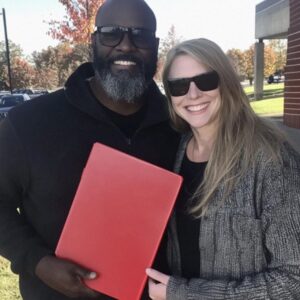My teenage daughter slammed the door after another fight about curfew. I texted her:
“Be home by 10 or don’t come home at all.”
She didn’t reply.
At 12:43 a.m., my phone rang. A trembling voice said:
“We found her purse, but…”
A waitress at a 24-hour diner found it stuffed under a bush—ID inside, no phone. My heart dropped. I drove straight there, still in my pajamas. The officer said they’d search, check cameras. But I knew how it goes—a missing teen gets labeled a runaway. We filed a report. Made flyers. I stopped eating. My husband took leave. I lit a candle by the window every night.
Her best friend Anika claimed she hadn’t seen her. But weeks later, we found out she had. They were at the diner that night—venting, eating fries. Then a guy showed up. An older guy Priya had been texting. She said he’d give her a ride. Anika begged her not to go. We gave his info to detectives. The trail led to a prepaid phone, a red Civic, and eventually—a motel. There they found her hoodie, sketchbook, and a gas receipt from days after she vanished.
That meant she was alive. Two months passed. No word. Then one day, my husband’s cousin sent a blurry Instagram story from a college party:
“Is this Priya?”
It was.
A student confirmed she’d stayed in her dorm for a few nights. When the police checked, Priya was gone—but the girl had taken a selfie with her. Clear as day. She was alive.
She had ditched the guy—”Dev”—after two days. Said he scared her. She ran. Couch-hopped. Drew portraits for cash. Lived out of a backpack. Called only when she had nowhere else to go.
Three months and seventeen days later, she whispered on the phone:
“Ma… can I come home?”
We met her at a youth center in Baltimore. She looked thinner. Older. But still her.
We didn’t scold. We just held her.
She told us everything: the rebellion, the regret, the fear, the freedom that turned heavy. How ashamed she felt. How much she missed her bed.
“I thought you’d hate me,” she said.
“Hate you?” I whispered. “I died every day you were gone.”
We got help. Went to therapy. Softened. Learned to listen. She started drawing again. Took summer classes. That guy? He’s in jail now. But I don’t think about him.
I think about the day she came home.
Because sometimes, our kids don’t need tougher rules—they need softer landings.
They need to know that home isn’t just curfews and lectures. It’s where love outshouts fear.
If this moved you, share it.
Someone out there needs the reminder:
It’s never too late to come home.





